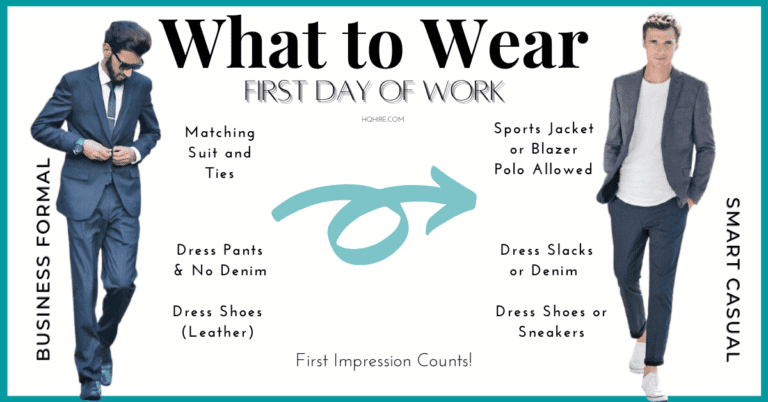Do you know how to answer one of the most common and tricky job interview question, “Why do you want to leave your current job?” Everyone has good reasons for leaving a job and it is normal.
In this question, you need to give you hiring manager have good reasons to ask “why”, don’t need to be too creative, keep it simple and relatable will do.
Good Reason for Leaving Your Current Job with Sample Answers
There are many common reasons for leaving your current position, it can be the work environment, the people, or even personal reasons which you may not want to share.
Let’s take a look at the best sample answer for different reasons to the question.
1. “I will like to have an opportunity to advance my career.”
Maybe you see a path where you can advance your career in another company. Or you see an opportunity to build a new skill that will be important to you.
It is totally alright to change jobs if you feel that it will help you to into a better career opportunity.
The key is to back it up with why they should hire you.
Here is an example of how you should answer:
“I have been at my company for five years and I am fortunate to have learned a lot from working with some of the most amazing salespeople.
During my time with the company, I progress up to associate sales manager 1 year ago. My team has beat our sales projections by at least 15% each quarter since.
It was an exciting time, but I feel that I need to challenge my capability more. That is when I came across this position which really appeals to me because it would allow me to manage a bigger team and sell products that impact life.”
2. “There is a management change in my previous job, thus it is time for me to explore better opportunities to advance my career.”
Maybe you see a change in your current company that doesn’t suit your work style. Maybe the change in management has led to an end in career advancement.
It is OK to change jobs if you feel that the current change management has led to a halt in your career. But tell them why you want to join their company.
Here is an example of how you should answer:
“I have really enjoyed my time at ABC Consulting and I am really proud of the achievements that I have successful completed with my team.
However, I think times had changed. We are undergoing some management changes right now and a lot of projects are on hold or cancelled.
After being with the company for almost 5 years, I have been thinking for a while that it is time for me to work for a bigger company with more opportunities of growth.
The job description of this position is a great fit because of my unique background in sales consulting and experience in running a team of sales professionals.”
3. “I was laid off.”
Layoffs happen once in a while, and it is most likely not your fault. Some small companies can have problems with their cash flow, which can result in a takeover by their competitors or the closing down of the company.
Here we have been clear that you are laid off due to what kind of reasons. Were you laid off due to the financial struggles of the company? Did your position get replaced and outsourced to companies overseas? Did the company go out of business?
Here is an example of how you should answer:
“Working in ABC Marketing Pte. Lte. have been exciting and challenging. Unfortunately, during the first quarter of this year, our company’s biggest client went out of business which have an major impact to the revenue.
As a result, the company had to reduce headcount in the department in order to reduce cost. After some deep thoughts, I’ve volunteered to leave the company as I think it will be a good time for me to advance my career in bigger firms.
I am proud of the successful marketing campaigns that I did with my previous company which gave me stellar performance reviews.
My former manager whom I have worked with for the past 5 years is one of my strongest references.”
4. “I was fired.”
Getting fired from your job can be hard to get over. It can be due to many reasons that you are being fired from your previous job, but you should never put the blame on others.
For example, if your job expectation has changed after you are hired then you need to state that. It can be due to a budget cut, new management, or even a change in the strategy of how the company is run.
If you are fired for any reason, don’t go into the details of how that makes you feel or try to lay blame on others.
Instead, you should focus on the lesson learned from the experience.
“How can you do better in the future.”
What differentiates you from others is your Mindset. The goal here is not to lie but to reassure your interviewer that you admit your mistakes and it is a one-off incident. You will not be a risky hire.
Here is an example of how you should answer:
“The company have been through a lot of changes. And after a few rounds of management changes, our new department manager had new expectations for the role. Which does not match with my strengths. Which she has decided to bring in someone from her previous company who have sales experience.
My time with my previous company makes me realized that my strength is marketing. It is both my passion and what I am really good at. I will be an asset to the company’s marketing team. This role allows me to play a part in marketing the company to a greater audience.
Would you like me to tell you more about my experience in this area, and probably how I can help in contributing to the company’s growth?”
5. “I left my last job to take time to take care of my family.”
This is a reasonable answer that some of the interviewers will probably understand and not drill any further. Everyone knows family is almost always the most important in our life. Everyone has different personal issues that require them to take time off from their job.
The way we want to answer is to be as short as possible and to share just enough details to answer the question. Keep it simple.
Here is an example of how you should answer:
“I have left my previous company so that I can have more time with my young kids who were just 1 years old and 3 years old. It was a tough decision during that time as I really love what I do but, as my kids are very young, they require a lot of attention.
Now, my kids are older, and we have a helper to help take care of my kids. I can join back the workforce and focus more on my passion and to pursue my career.
This allows me to do what I am really good at, and I believe I am up to the challenge.
6. “I went back to studies to pursue a Master’s Degree (Etc.)”
Studies are always one of the best reasons why people left their job. People who are passionate about what they do study the topic they loved.
These are people who focus on improving themselves, they will always take up courses and educational qualifications to keep themselves ahead of the game and competition.
This is a desirable trait that interviewers are looking for, we love to have people with passion on our team.
Answer specifically why you want to go and get your higher education and how it will help you in this role you are applying for.
Here is an example of how you should answer:
“I am always passionate about science and research. My previous job has shown me that how much I need to know in order for me to perform my job even better, thus I took up the Master’s degree on Microbiology.
Graduating from the course have opened up my mind and gave me many insights to conducting experiments. Here I have learnt many skills and improve my critical thinking skills on analyzing different test.
I believe I will be a valuable asset to the team of researcher here, where I can work with one of the finest research team of the institution.
7. “I will like to take a position with a company that is closer to my home.”
Traveling day in and day out is really tiring. The average traveling time to and back from work in the United States is approx. 50 Minutes. Around 25.4 Minutes per trip according to Inc.com. And here is some interesting fact about traveling time to work.
Researchers in England have found that every additional 20 minutes of travelling you need to make per day to work have the same negative effect on job satisfaction as receiving a 19% pay cut.
This is as reported by Harvard Business Review. The more traveling time you need to get to work, the less happy you are with your work and the more likely you will leave.
Your interviewer understands that no one love to take a long time just to get to work. Thus, this is one of the best reasons for you to give. Just keep it simple and short.
Here is an example of how you should answer:
“As I am living in the east side of the city and my previous company is located in the west. It takes me approx. 3 hours of travelling between work and home each day.
During my search to take up a position with a company that is located closer to home that requires less travelling time. I chance upon this role who provides opportunity to advance my career and take up more responsibility.
I believe with my wealth of experience in marketing, this position as a marketing manager allows me to lead the marketing team to grow the company further into success.”
How to Explain Your Reasons for Leaving Your Job
While there are many good reasons for leaving a job for a new job, one good tip is that:
- You want to keep your answer focused on the positive aspect.
- Show that you are leaving your job on good terms.
Here are some steps to take create your perfect answer to the question “why do you want to leave your current job”.
Step 1: Reflect on Your Motivation
Before the interview, take some time to reflect on your reasons for leaving. Identify the positive motivations for looking for a new job such as;
- Career growth
- Skill development
- Desire for new challenges.
Step 2: Be Honest, but Tactful
While honesty is crucial, choose your words wisely.
- Avoid negative language about your current employer or colleagues.
- Avoid talking negative about your current or previous employer.
- Focus on your personal and professional growth as your reason for wanting to leave.
Emphasize Career Advancement
Express a desire for career advancement as a primary motivator for your job search.
Highlight specific achievements in your current role and explain how the new opportunity aligns with your career goals.
Link to Skills and Experience
Connect your decision to leave with the opportunity to acquire new skills or experiences.
Discuss how the new role complements your existing skill set and presents a chance for further development.
Address Changes in the Current Job
If there were significant changes in your current job, such as management shifts or alterations in company direction, briefly mention them.
Focus on how these changes influenced your decision to seek new opportunities.
Step 3: Mention Positive Experiences
Share positive experiences from your current job, acknowledging your appreciation for the learning and growth it provided.
This demonstrates gratitude and a positive attitude.
Step 4: Discuss Company Fit
Express how the values and goals of the prospective company align with your professional aspirations.
Emphasize how your skills can contribute to their success, creating a sense of mutual benefit.
Step 5: Be Concise
Keep your response concise and to the point.
Avoid unnecessary details and focus on the key reasons that will resonate positively with the interviewer.
Step 6: Practice Your Response
Practice your answer with a friend or in front of a mirror.
This will help you deliver your response confidently and ensure it aligns with your intended message.
Step 7: Stay Positive
Maintain a positive tone throughout your response. Even if your current job has challenges, frame your decision as a proactive step toward personal and professional growth.
Why Do Job Interviewers Ask This Question?
Your reasons for leaving the job are almost the most important question that your interviewer will ask.
Here are some of the items that your interviewer is looking for when asking this question.
Q: Did you leave on your own accord?
If you’re asked to leave, your interviewer will probably want to know if it is due to your performance or any undesired issue that you have.
Q: Is the reason for you to leave your company good?
If you left because you went into a fight with your boss or for some weird reason such as “I just feel like it”.
The interviewer will probably want to reconsider your being with their company.
Q: Have you left on good terms with your colleagues?
If you left on good terms with your colleagues or even with your previous manager as one of your references.
It will show that you are an easy-going person that may fit in their team too.
Q: What kind of employee are they expecting from you?
Your reasons for leaving show what kind of employee you are if you are hired.
Did you leave because you feel that you are not given enough opportunity to grow as a professional? Or simply because of the money.
Your reason for leaving and how you express and answer the question make a big difference in your chance of being hired.
Join over 11,000+ achievers who are committed to achieving their career goals!






